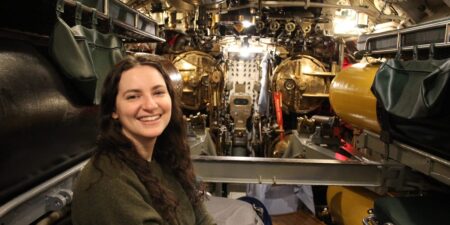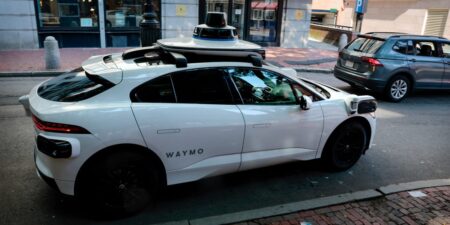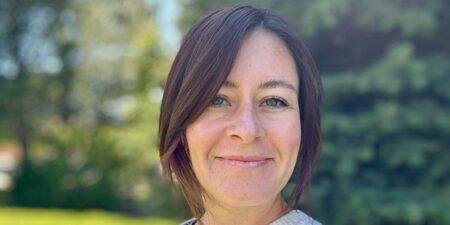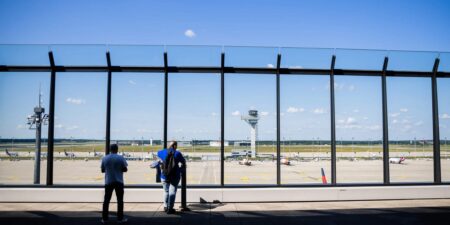Moonvalley, one of the prominent AI firms working in Hollywood, just raised $84 million in new funding to build on its AI video tools for filmmakers and other creative professionals, Business Insider learned exclusively.
The round was led by an existing investor General Catalyst and, in a vote of confidence from Hollywood stalwarts, includes strategic investments from talent giant CAA and Comcast Ventures, the VC arm of Comcast.
Cloud infrastructure provider CoreWeave also is participating, as are existing investors Khosla Ventures and YCombinator. The new round brings Moonvalley’s total funding to $154 million.
Moonvalley is among a handful of companies that are trying to make inroads into Hollywood by touting an ethical AI model. This comes as some other AI companies are being accused of stealing copyrighted work. Disney and Comcast’s Universal are suing Midjourney, accusing it of copyright infringement.
Moonvalley’s pitch is that its AI model, Marey, is trained on licensed content as well as content it’s made itself. The company was founded by veterans of Google’s DeepMind and owns AI film studio Asteria Film Co., which was co-founded by filmmaker and actor Natasha Lyonne and filmmaker Bryn Mooser.
Naeem Talukdar, Moonvalley’s CEO and cofounder, said the new funding would help Moonvalley build on its AI video tool, Marey. Marey was just released to the public after being tested with filmmakers and studios and is sold on a subscription and licensing basis, starting at $14.99 a month.
Talukdar said Marey has licensed footage from sources like independent filmmakers and YouTubers over the years, but believes it has only one-fifth of the amount that other AI video generators like OpenAI’s Sora and Google’s Veo 3 have. While good at creating people, it also has gaps in certain areas, like animation and certain types of sports footage. “It doesn’t really know how basketball works,” he said.
How Moonvalley works with studios
Sensitivities run high in Hollywood about the potential for AI to take creative ideas and jobs. Few have gone public with their work with AI. The exceptions are Lionsgate, which did a deal with Runway to train an AI model on its library; and AMC Networks, which announced plans to use Runway’s tools to generate promotional material for its shows. There continues to be skepticism about how AI models are trained.
Like a lot of AI companies focused on Hollywood, Moonvalley says it works across the big movie studios but won’t name any of them. It hasn’t shared details about the sources of its licensed content. Talukdar said it believes in being transparent and has a plan to share that information at some point.
“We’ve worked with probably thousands of independent filmmakers, small studios,” he said. “So there’s just a lot of stuff we have to underline, but we have it in our plans, now that we’ve actually finished Marey and published it, to start working on figuring out how to do that and hopefully build out a kind of sort of a structure that other model companies can follow as well.”
Talukdar said Moonvalley is working directly with studios or via independent filmmakers who are making projects for them.
In some cases, Asteria acts as a creative consultant, helping the studio use the technology. In others, the studios are using Marey themselves, on everything from special effects to the production itself, usually with things like B-roll or background footage. In one case, a studio is using Marey to fine-tune a long-running TV show. “We have a few trailblazers that are looking at using it for actual key scenes in production,” he said.
He also said the biggest studios have approached Moonvalley about creating proprietary models, using Moonvalley’s licensed video to supplement their own libraries.
Moonvalley’s view on AI’s opportunity
Talukdar acknowledged some creators’ fear around AI, but said he thinks that fear will subside once people see that the AI won’t replace creative ideas and filmmaking at scale.
“This idea that everybody’s just going to create these movies for themselves — we think that’s absolutely nonsense,” he said. “AI will never have taste.”
Netflix co-CEO Ted Sarandos recently waded into the AI conversation, saying it represents an opportunity to make movies “10% better,” not just cheaper. Talukdar said in addition to improving movies, studios are excited about being able to make more films that they haven’t previously greenlit because of budgetary constraints.
“The net new result is going to be a.) a whole slate of productions that couldn’t get done, even though they should get done,” he said. “And b.) existing productions just becoming a lot better.”
Read the full article here
















